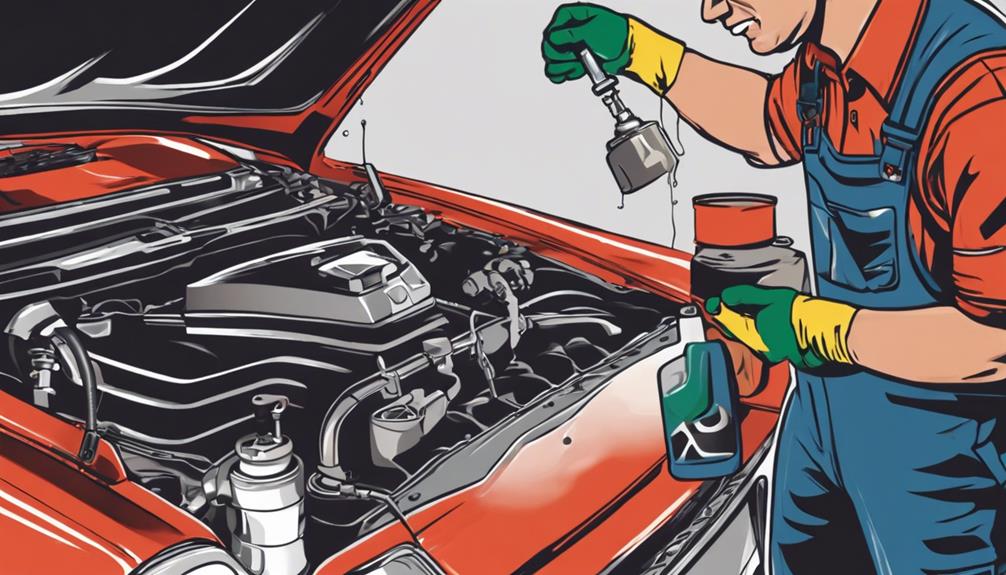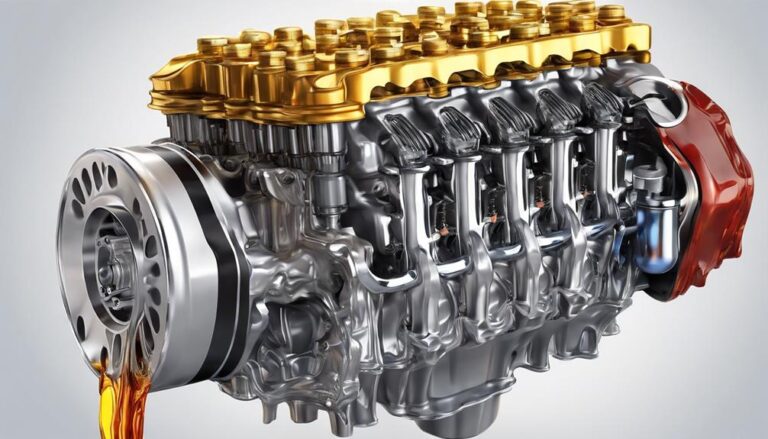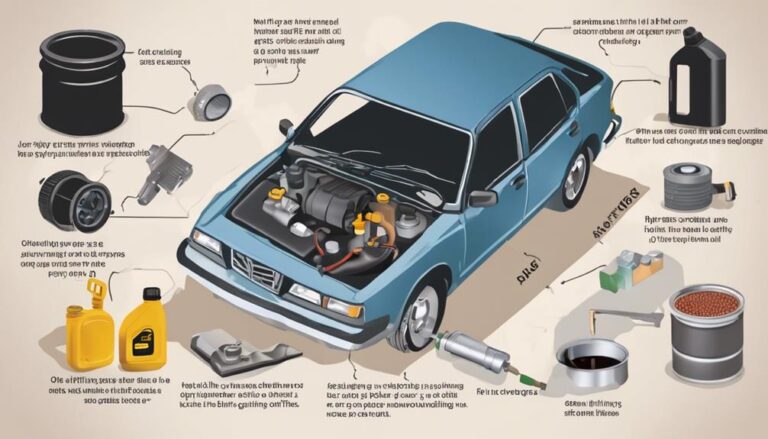Affordable Ways to Change Oil and Replace Filter
Did you know that the average cost of a professional oil change can range from $20 to $70, depending on where you go?
But what if you could save even more money by taking matters into your own hands and changing your oil and filter yourself?
It might sound daunting, but with a few key tools and some basic know-how, you could be well on your way to keeping your car running smoothly without breaking the bank.
Intrigued to find out how you can tackle this task affordably?
Key Takeaways
- Utilize oil change deals for cost savings and engine maintenance.
- Consider DIY techniques like using an oil filter wrench and proper disposal.
- Reusable filters offer durability and long-term cost benefits.
- Choose synthetic oil for superior engine protection and long-term value.
Utilize Oil Change Deals
To save money on routine maintenance, consider taking advantage of oil change deals that offer discounted prices for both oil changes and filter replacements. Many oil change places provide package deals that include both services at a reduced cost. It's essential to compare prices and seek discounts to get the best deal possible.
By choosing oil change promotions that include free or discounted filter replacements along with the service, you can make your regular maintenance more affordable and convenient. These deals not only help you save money but also ensure that your vehicle's engine remains in top condition.
When searching for oil change deals, look for reputable service providers that offer quality products and reliable workmanship. By utilizing these offers, you can keep your vehicle running smoothly without breaking the bank. Don't miss out on the opportunity to save on essential maintenance tasks with discounted oil change deals.
DIY Oil Change Techniques
Considering the steps required for a successful DIY oil change, it's essential to gather all necessary items before you begin the process. Make sure you have the replacement oil filter, clean motor oil, oil filter wrench, wrench or socket with a ratchet, and an oil pan for catching the old oil.
Here are some essential techniques and tips for a smooth oil change:
- Use the oil filter wrench to remove the old oil filter and clean the mating surface before installing the new one.
- Lubricate the rubber seal of the new oil filter with clean oil before hand-tightening it into place.
- Utilize a long funnel for easy pouring when refilling with the correct amount of clean motor oil.
- Reset the oil life indicator on your vehicle after completing the DIY oil change to ensure proper maintenance tracking.
- Dispose of the old oil properly to minimize environmental impact. Avoid common mistakes like over-tightening the oil filter or drain plug, and troubleshoot any leaks promptly for a successful DIY oil change.
Opt for Reusable Filters
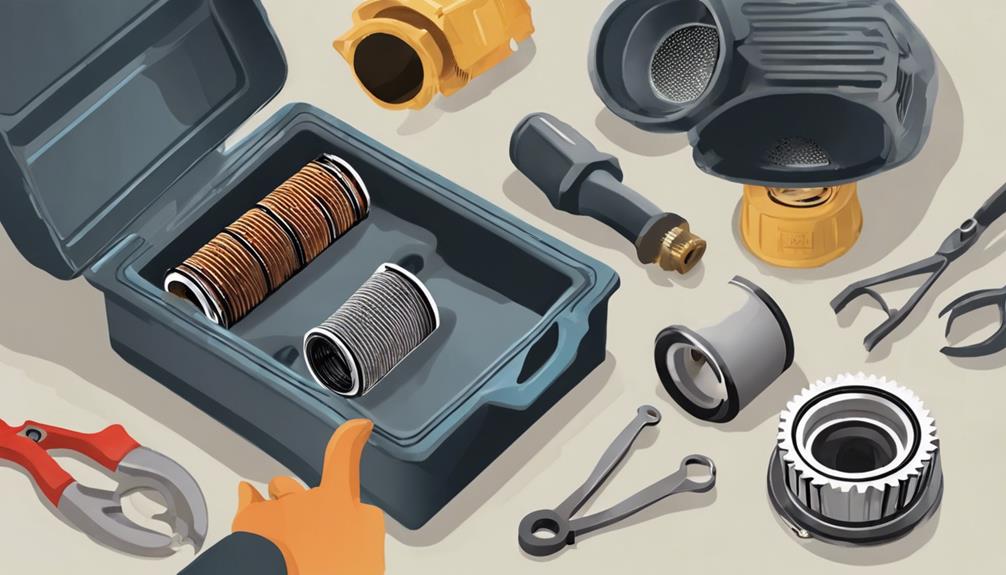
Opting for reusable oil filters provides long-term durability and cost savings for your vehicle's maintenance needs. These filters are constructed from durable metal, outlasting your car's lifespan and offering superior engine protection compared to disposable filters. While the initial cost may be higher, the long-term benefits far outweigh the expense. Disposable filters pose a risk of harming your engine, making reusable filters a safer and more cost-effective choice. Brands like PurePower! offer high-quality reusable filters that not only enhance engine longevity but also contribute positively to filter maintenance and reduce environmental impact by producing less waste. Investing in a reusable oil filter can lead to significant savings over time and better overall engine performance. Consider the table below for a quick comparison:
| Feature | Reusable Oil Filter | Disposable Oil Filter |
|---|---|---|
| Durability | High | Low |
| Cost-effectiveness | Long-term savings | Initial lower cost |
| Environmental Impact | Reduced waste | More waste produced |
Consider Synthetic Oil Options
When exploring oil maintenance options for your vehicle, synthetic oil stands out for its extended lifespan and enhanced engine protection. Consider the following benefits of synthetic oil:
- Longer Lifespan: Synthetic oil has a longer lifespan compared to conventional oil, reducing the frequency of oil changes.
- Better Engine Protection: It provides superior engine protection, leading to decreased wear and tear.
- Cost-Effective: Although synthetic oil has a higher initial cost, it can result in fewer engine repairs and maintenance costs over time.
- Long-Term Value: Despite the higher upfront expense, synthetic oil offers greater long-term value and performance.
- Manufacturer Recommendations: Many car manufacturers recommend or require the use of synthetic oil for optimal engine function.
When comparing the cost of synthetic oil to conventional oil, it's essential to consider the long-term benefits and potential savings in engine maintenance. By investing in synthetic oil, you aren't only protecting your engine better but also potentially reducing overall maintenance costs in the future.
Collaborate With Independent Mechanics
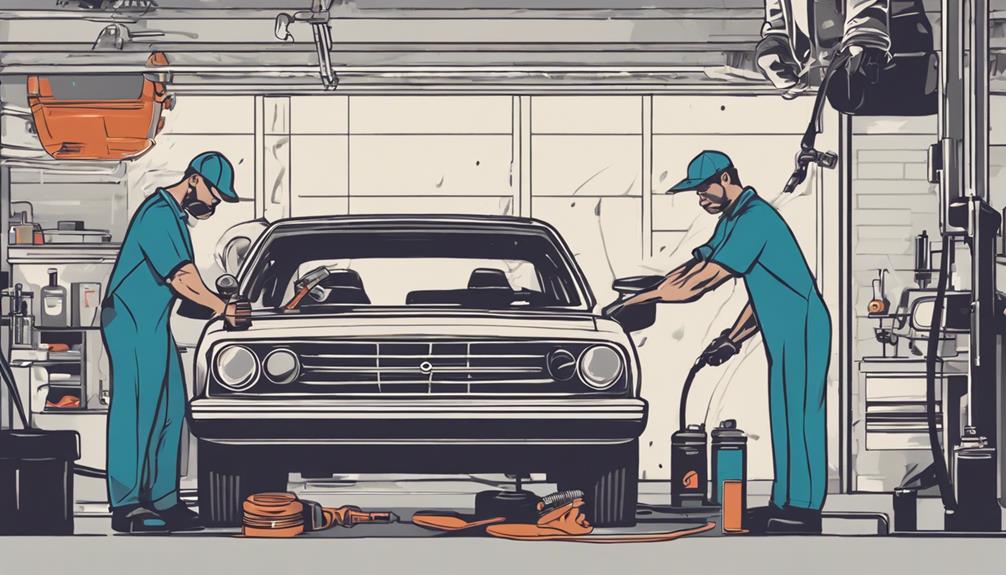
To maximize cost savings and personalized service for your oil changes, collaborating with independent mechanics is a strategic choice. Independent mechanics often offer lower labor rates than dealerships, helping you save money on routine maintenance. Moreover, these mechanics may permit you to supply your own oil and filter, further reducing the overall cost of the service.
Building a relationship with an independent mechanic can lead to tailored service and potential discounts on future maintenance needs. The flexibility of independent mechanics with scheduling can also be advantageous, as they may accommodate urgent oil change requirements at a lower cost than larger establishments.
Frequently Asked Questions
Is It Cheaper to Change Your Own Oil and Filter?
Changing your own oil and filter is cheaper, providing significant cost savings. The DIY process can cost $20 to $40, whereas professional services range from $50 to $70. Despite the time commitment and learning curve, DIY remains a cost-effective option.
How Much Does an Oil Filter and Change Cost?
Changing your oil and filter can cost between $20 to $100. DIY oil changes offer savings, with basic supplies ranging from $15 to $30. Consider your choice of oil and filter for cost-effective maintenance.
Can I Change Engine Oil and Filter Myself?
Yes, you can change your engine oil and filter yourself. DIY benefits include saving money and empowering you to care for your vehicle. Necessary tools include a wrench, oil filter wrench, oil pan, clean motor oil, and a replacement oil filter.
Is It OK to Change Oil but Not Filter?
You should always change the oil filter when you change the oil. Neglecting the filter can lead to engine damage, reduced longevity, and compromised lubrication. Maintaining both filter and oil ensures optimal engine performance and longevity.
Conclusion
In conclusion, by taking advantage of oil change deals, DIY techniques, reusable filters, and synthetic oil options, you can keep your vehicle running smoothly without draining your wallet.
Think of your car's engine like a well-oiled machine that needs regular maintenance to function at its best.
Collaborating with independent mechanics for discounts and promotions can also help you save money in the long run.
Keep your engine purring with these affordable oil and filter replacement tips!

